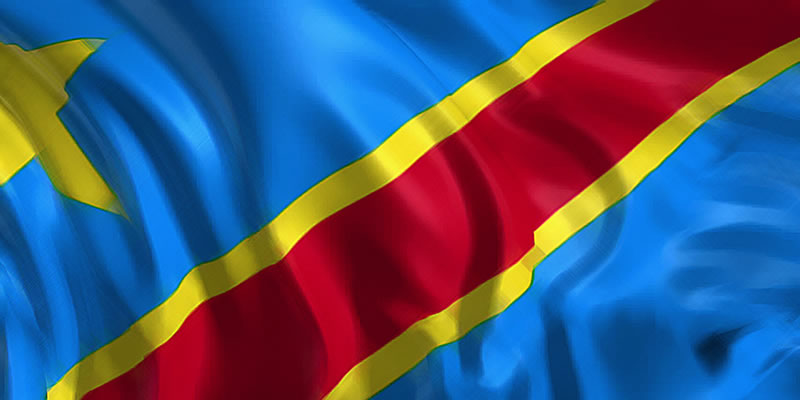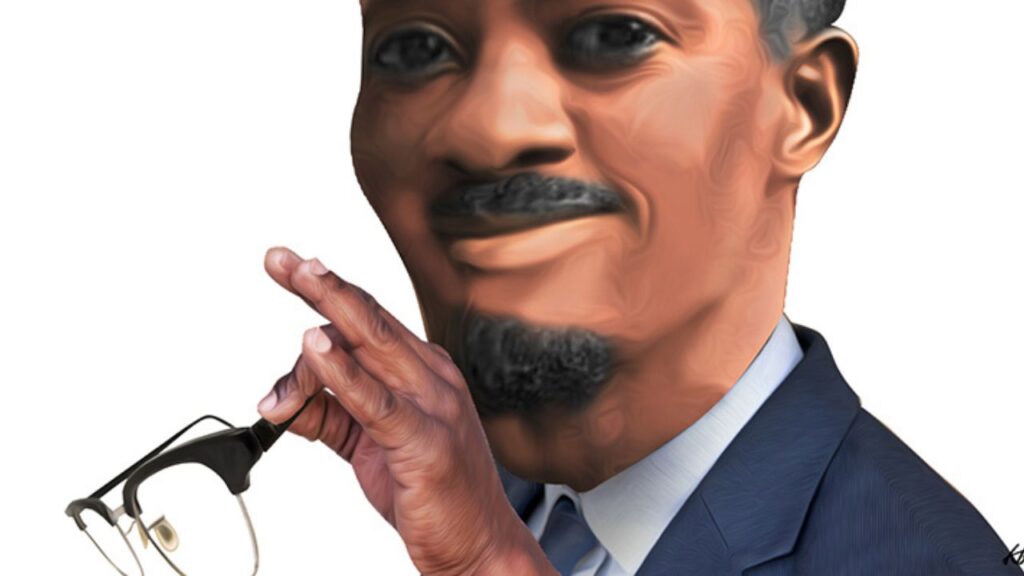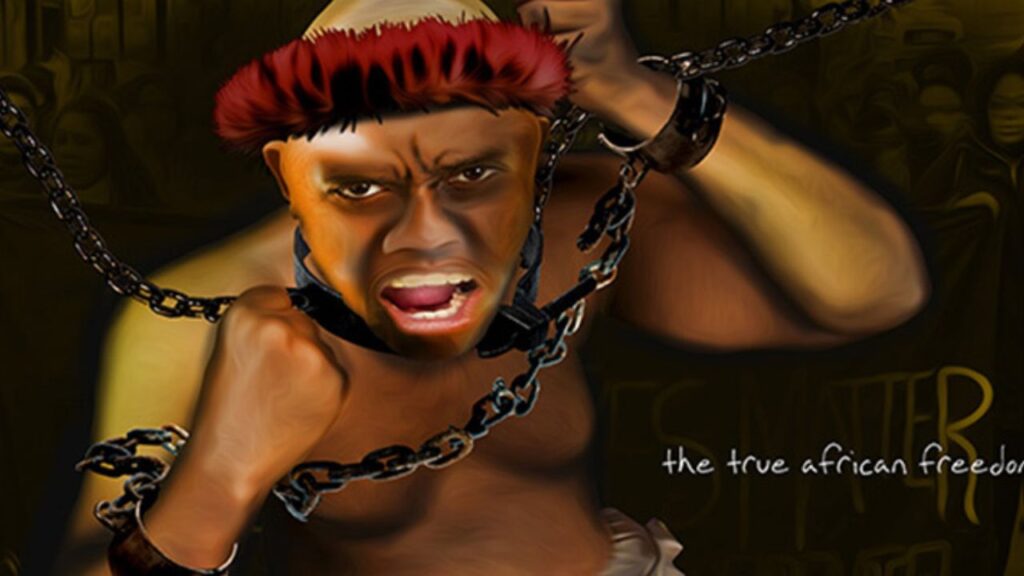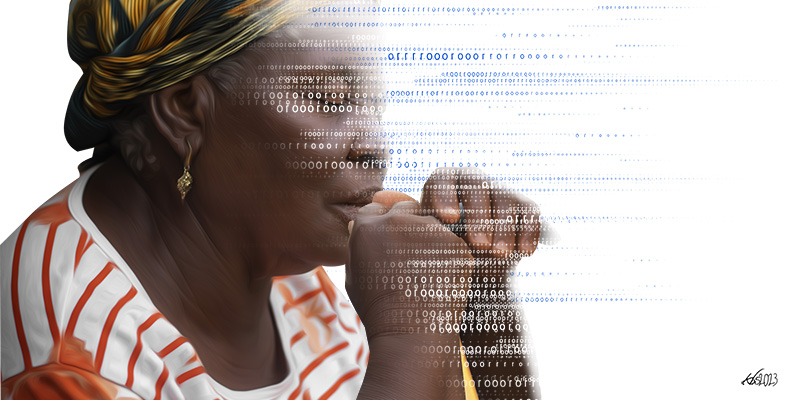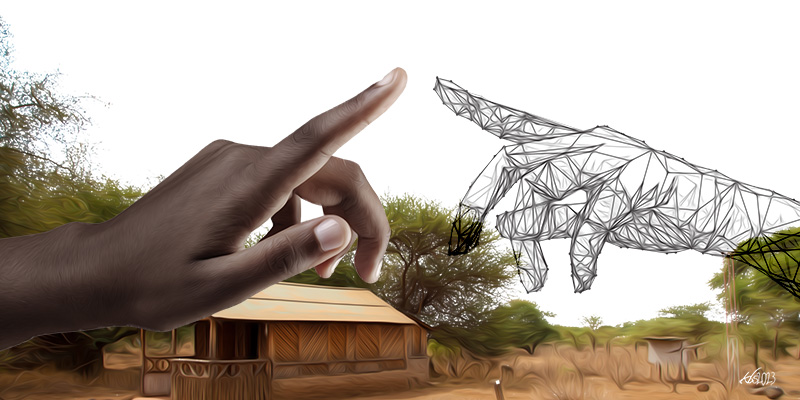Jean-Pierre Bemba is the man of the moment. He recently won a huge, unlikely acquittal at the International Criminal Court (ICC), returned home to the Democratic Republic of the Congo without hassle after a decade in jail in Europe, and lodged his papers to run for president in a poll in which the incumbent, President Joseph Kabila, won’t be running.
Veteran opposition leader Étienne Tshisekedi, who stood for president in December 2011 on the ticket of a coalition of parties and lost with 32 per cent of the votes, died in February last year. His son, Félix Tshisekedi, took over the mantle of the country’s leading opposition party, the Union for Democracy and Social Progress (UDPS) and remains the favoured opposition candidate to succeed Kabila as president. But Bemba might just overtake him. With Kabila himself not standing, Bemba is a strong contender among an opposition line-up that looks the favourite relative to Kabila’s candidate, former interior minister, Emmanuel Ramazani Shadary.
Another leading opposition contender, Moise Katumbi, has been locked out of running by state authorities, further brightening Bemba’s prospects of clinching the top seat in the troubled central African country. And yet, it would take an abundance of optimism to say that Bemba is on the cusp of becoming DR Congo’s president, as events in Kinshasa and in The Hague, over which he lacks control, could extinguish his prospects for election come December.
Bemba, 55, founded the Movement for the Liberation of Congo (MLC) rebel group in 1998 with support and training from the government of Ugandan president Yoweri Museveni. He was 35–years- old. The son of Jeannot Bemba Saolona, a powerful businessman, Bemba went on to become a successful entrepreneur himself.
Two decades ago, the MLC was one of a myriad of groups supported by Rwanda and Uganda to fight the government of Laurent-Désiré Kabila, Joseph Kabila’s father, whom the two countries had supported to grab power from veteran despot Mobutu Sese Seko in 1997. The MLC turned out to be the most stable of these groups, establishing extensive administrative control and public services (such as courts of law, health centres, and schools) in the large part of the country that it controlled. Having transformed itself into a political party, the MLC remains a major player in Congo’s politics, and is by far the most visible of the former rebel groups-turned political parties.
Under the power-sharing agreement aimed at ending the fighting, Bemba became one of Congo’s four vice presidents in 2003. He went on to contest elections three years later, emerging second to Kabila. The decade he has been away in The Hague has taken a toll on his party, and on his personal profile, and yet the time seems just right for him to be back to have another go at the presidency.
But there are various odds stacked against his candidacy, some of which he may not easily navigate.
Under the power-sharing agreement aimed at ending the fighting, Bemba became one of Congo’s four vice presidents in 2003. He went on to contest elections three years later, emerging second to Kabila. The decade he has been away in The Hague has taken a toll on his party, and on his personal profile, and yet the time seems just right for him to be back to have another go at the presidency.
First, we look at his prospects.
1. Riding the Kabila unpopularity vote
Joseph Kabila is hugely unpopular. His dogged attempt to defy the constitution and stand for a third term, his inefficient government that has failed to root out armed militia groups, his lukewarm response to rampant corruption in the public service, and his dithering as security forces killed peaceful protesters for months, all made him a hated figure among the electorate. Whereas Kabila has finally declared that he will not run, his unpopularity will necessarily rub off the ruling coalition’s candidate.
According to results of a nationally representative poll published in February, only 10 per cent of respondents would vote for Kabila if he stood for president, and in what is known as his last stronghold, only 37 per cent would vote for the incumbent. Moreover, the unpopularity is shared by other senior government officials and the elections commission. A large majority of respondents (70 per cent) had an unfavourable opinion of Prime Minister Bruno Tshibala – the same for Joseph Olenghankoy, who heads the committee implementing the agreement reached by government and the opposition in the lead-up to the elections.
In power since January 2001 when he replaced his assassinated father, Kabila has few successes to point to. His refusal to step down ahead of the elections and to fully implement the December 31, 2016 agreement signed between the opposition and the government did not endear him to voters. And his decision not to run in the December polls does not do much to improve his ruling coalition’s chances. As interior minister between 2016 and February 2018, Shadary oversaw the forceful repression of demonstrations and arrests of activists and opposition politicians. That did not earn him many admirers.
2. How the ICC trials boost Bemba’s chances
Whereas many Congolese nationals support the work of the ICC, a great number are frustrated with the fact that trials take way too long (it took ten years from Bemba’s arrest for his trial to be concluded with an acquittal on appeal). More distinctly, many Congolese citizens have always felt that Bemba’s arrest and prosecution was politically motivated – that it was meant to keep him away from Congo’s politics.
The criticism that Kabila conspired with “Western powers” to try Bemba has been around for several years, with one respected 2012 research report showing many Congolese believing that Bemba was “targeted”. The report added: “Many Congolese see his arrest as evidence that the court is being used as an instrument by the Congolese government to undermine its rivals. Whether or not this is the case, the action by the court removed a major political player from the scene ahead of the recent 2011 presidential elections, substantially weakening the challenge to President Kabila.”
Similarly, Bemba is likely to receive the support of those who feel sympathy for his perceived wrongful prosecution. Indeed, poll results released on July 31, 2018 by the Congo Research Group based at the Center on International Cooperation at New York University, indicated that Bemba’s popularity had gone up 16 per cent since last November, as 83 percent of respondents “thought his acquittal was a good thing.”
The criticism that Kabila conspired with “Western powers” to try Bemba has been around for several years, with one respected 2012 research report showing many Congolese believing that Bemba was “targeted”. The report added: “Many Congolese see his arrest as evidence that the court is being used as an instrument by the Congolese government to undermine its rivals…”
There have been longstanding questions among Congolese critics of the court as to why, for instance, former Central African Republic president Ange-Félix Patassé was not tried with Bemba, or instead of him. As president, Patassé invited the MLC into his country to help him fight a coup attempt, and it was while the Congolese rebel troops and Central African forces were fighting the insurgents that the crimes over which Bemba was tried in The Hague were committed. Others wondered why senior MLC commanders who were in the CAR were not tried, as it was deemed that they bore more control over the group’s troops deployed in that country.
Nonetheless, as one close Congolese observer has pointed out, for some Congolese the acquittal merely highlights what in their minds is the injustice of the original decision to prosecute Bemba. According to her, even if Bemba is not allowed to run, he could make a significant impact on the electoral outcome by endorsing another candidate.
3. The potential opposition unity
There are strong indications that if the opposition fronted a united candidate, it would garner more votes than Kabila’s candidate. Opinion poll results showed at the end of July that the three main opposition candidates each had between 17 per cent and 19 per cent of the vote, while candidates from the ruling coalition would get a combined total of 19 per cent. At the very least, these results seem to show that, in a credible election, the ruling party’s candidate would not be the winner of a majority of votes; and if the top three opposition contenders front a common candidate, that candidate would have a smooth sail to the presidency.
The big question, however, is whether the opposition will throw its weight behind a single candidate. History does not favour this prospect. The DRC is a large country, with 46 million registered voters, more than 400 political parties, some of which have regional interests and whose agendas do not easily coalesce with those of national parties. That makes it difficult to forge national coalitions.
But the prospect of wrenching power from the ruling coalition could just push the political actors to put personal ambitions aside. Kabila has not always won by huge margins. In 2006, he took 44 per cent of votes in the first round, before getting elected with 58 per cent of the vote in a run-off against Bemba. In the last elections of 2011, he won with 48.95 per cent.
Who then should be the opposition candidate? Whereas Bemba has a loyal base in the country, his decade-long absence has seen a significant slide in the proportion of his party’s representation in parliament, with many senior party members decamping.
Currently, Tshisekedi has a better rating at the polls, and leads a larger party than the MLC. However, he is a political novice compared to Bemba, who has been vice president and senator, and has useful networks in some neighbouring countries, notably Uganda. His experience as the leader of a large rebel group, most of whose members were integrated into the national army, also means that at least a section of the military could find him more acceptable. With Katumbi out of the running, Bemba only has Tshisekedi to overtake as the leading opposition contender.
Currently, Tshisekedi has a better rating at the polls, and leads a larger party than the MLC. However, he is a political novice compared to Bemba, who has been vice president and senator, and has useful networks in some neighbouring countries, notably Uganda.
Bemba needs to court leading opposition actors, not least his former party members that have since moved on, and other key actors, including Vital Kamerhe, who took 7.7 per cent of the presidential vote in 2011. Moreover, Bemba’s prospects would improve further if he won an alliance with church groups that spearheaded the protests against Kabila’s third term project, as well as youth movements such as LUCHA and Filimbi.
The above notwithstanding, there are various factors that could still stand in the way of a Bemba presidency.
4. The upcoming sentencing at the ICC
In June this year, appeals judges at the ICC acquitted Bemba of war crimes and crimes against humanity after trial judges had convicted him in 2016 and handed him an 18-year prison sentence. The acquittal paved the way for his interim release to Belgium, where he has a residence, before he returned to Congo on August 1, after being away for 11 years.
The case for which Bemba was acquitted is one of two that he has faced at the court. In the first case, he was tried for failing to stop or punish his MLC soldiers who committed rape, murder, and pillaging in the CAR during 2002 and 2003. Although he was not in the CAR himself, he was tried under the principle of “command responsibility” whereby superiors are responsible for the actions of their subordinates.
Whereas that case was settled with finality when Bemba was acquitted last June, the conviction for the second case was confirmed by a separate appeals chamber. The sentence will be announced in the coming months. In the second case, judges found that Bemba and his former lawyers bribed witnesses to give false testimony on behalf of Bemba. Initially, judges had handed Bemba a one-year sentence and a fine of €300,000, but the appeals chamber ordered that a fresh sentence be pronounced since there were errors made in the initial sentencing. The prosecution is asking that Bemba be handed a maximum prison term permissible for this offence, namely five years, and that he should be sent back to the ICC detention centre to serve the sentence out.
It is unlikely that Bemba will be handed a five-year jail term, or that he will be sent back to the detention centre for a period longer than a few months. His lawyers argue that even if he were handed the maximum sentence, the four years and six months he spent in detention from the time the warrant for his arrest for witness tampering was issued should be subtracted from any prison term he may be required to serve. The defence also argues that the time he has already served is proportionate to the offences for which he was convicted.
Ultimately, it remains to be seen whether the judges will hand Bemba a custodial sentence – which could undermine his presidential campaign – or whether they will only issue a monetary fine.
5. Fighting the power of incumbency
Given the power of incumbency and the large network of patronage in the civil service, in the military and even in many provincial administrations, Shadary has huge advantages. It means Kabila’s party can use the largesse accumulated from siphoning off state resources in a state short on accountability mechanisms to run a large-scale campaign and to bribe voters to vote for the ruling coalition’s candidate.
Moreover, the state has the opportunity to steal the election through the bloated voters’ roll, or by manipulating the electronic voting machines that are being introduced. The electoral body is not trusted to conduct free and fair polls, according to research, while courts of law may not impartially arbitrate electoral disputes.
The state of insecurity and the poor transport networks exacerbate the headaches which opposition candidates must endure to reach large parts of the country. That’s a challenge the ruling party does not share in equal measure. Nonetheless, Bemba has been known to have deep pockets and equally well-heeled backers, which means he could put up a more serious campaign in this regard relative to other contenders.
The state of insecurity and the poor transport networks exacerbate the headaches which opposition candidates must endure to reach large parts of the country. That’s a challenge the ruling party does not share in equal measure. Nonetheless, Bemba has been known to have deep pockets and equally well-heeled backers, which means he could put up a more serious campaign in this regard relative to other contenders.
Moreover, as stated earlier, the incumbency could in many respects prove to be a monkey on Shadary’s back, given the unpopularity of Kabila and the dysfunctionality of his government.
6. The government could derail’s Bemba’s bid
Will the Congo government invoke legal reasons to derail Bemba’s presidential bid? Following the close of presidential nominations on August 8, the electoral commission will announce on September 19 the list of candidates approved to run.
Prior to Bemba’s return to Congo, a spokesperson of the ruling coalition suggested that the former vice president should not be allowed to run for president due to his conviction for witness tampering. He cited Article 10 of the Congolese electoral law, which stipulates that a person guilty of corruption is not eligible to stand as a candidate in electoral processes. According to the spokesperson, the conviction at the ICC amounted to corruption and Bemba should, therefore, not be allowed to stand.
Given the challenge Bemba poses to the ruling coalition’s hold on power, it is likely that a challenge to his eligibility will be presented before the constitutional court. How that would pan out is unknown.
Prior to Bemba’s return to Congo, a spokesperson of the ruling coalition suggested that the former vice president should not be allowed to run for president due to his conviction for witness tampering. He cited Article 10 of the Congolese electoral law, which stipulates that a person guilty of corruption is not eligible to stand as a candidate in electoral processes. According to the spokesperson, the conviction at the ICC amounted to corruption and Bemba should, therefore, not be allowed to stand.
A second legal challenge to Bemba could arise from events in the weeks before he fled to Brussels in early 2007. At the time, the DRC’s attorney general had asked the senate to revoke Bemba’s immunity so that he could be charged for treason. The alleged treason resulted from deadly clashes earlier that year between Bemba’s loyalist troops and mainstream government forces. With the Congo government not averse to inventing charges to dog opponents (the same move used to block Katumbi from running for president), it is possible that the alleged treason charges from 2007 could be resurrected.
However, the fact that Bemba was allowed to return, was allowed free movement in the country where huge crowds welcomed him, with police securing his movements, could signal that the government may not slap charges against him. Barring Bemba from running could also be a recipe for civil disobedience, which the government might want to avoid.
Kabila knows that the eyes of much of the world are trained on him, not least those of the United States government, which has openly pushed him into not standing for re-election, so he might try to play fair after all. As it is, Bemba’s star is shining brightest than it ever did in the last decade, but whether this will be a false dawn remains to be seen.

